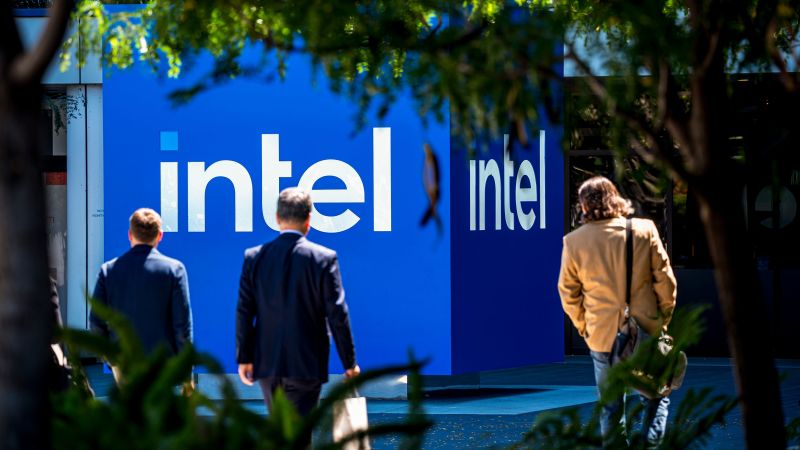In a recent development, Treasury Secretary Scott Bessent made headlines by suggesting that the United States government might consider acquiring a stake in the beleaguered chipmaker, Intel. This statement came on the heels of various media outlets reporting ongoing discussions about such a potential arrangement. If materialized, this would represent a significant and unusual policy maneuver by the Trump administration, marking one of the rare instances where the government would invest directly in a private American business.
During an interview on CNBC Tuesday morning, Secretary Bessent articulated that the government’s interest in Intel would not primarily revolve around profit-making. Instead, he underscored that the potential investment would be aimed at bolstering an essential American technology company, particularly amidst current economic pressures. Bessent confirmed that the administration is contending with Intel’s performance and stability, expressing a commitment to ensuring the chipmaker’s production capabilities remain in the United States.
When probed on whether this government stake could lead to influencing U.S. companies to source chips from Intel, Bessent clarified the intention behind any investment. He stated that the objective would be to “help stabilize the company for chip production here in the US,” rather than exerting pressure on tech firms to increase purchases from Intel. This sentiment was echoed in his remarks about the potential conversion of previous grants under the CHIPS and Science Act, hinting that the administration is deliberating converting such grants into an equity stake—potentially estimated at around 10% in Intel. Such transformations could reflect an innovative approach to government support for domestic manufacturing and tech industries.
Bloomberg, the financial news outlet, was the first to bring attention to these discussions last week. In a further dialogue on national security, Bessent emphasized that U.S. dependence on Taiwan for semiconductor manufacturing raises considerable concerns. He brought to light the government’s agenda to mitigate risks posed by such reliance, marking it as a critical “national security concern.” The secretary pointed out the necessity of addressing this “single point of failure” to ensure a resilient domestic supply chain for semiconductors.
While these conversations continue, Intel has chosen to remain non-committal regarding the details of any prospective government stake, opting instead to express its ongoing commitment to supporting President Trump’s initiatives aimed at reinforcing U.S. technology and manufacturing leadership. A spokesperson for Intel conveyed that the company intends to further its collaboration with the Trump administration but refrained from commenting on speculative matters regarding potential investments.
The White House, echoing similar sentiments, indicated that discussions surrounding hypothetical deals should be viewed with caution unless there are formal announcements from the administration. This level of caution reflects the underlying complexity and the delicate nature of potential governmental interventions in private enterprises.
Adding another layer to this evolving narrative, reports emerged indicating that significant chip manufacturers such as Nvidia and AMD have agreed to contribute 15% of their chip sales from China to the U.S. government in exchange for export licenses. Insights from individuals familiar with the White House discussions revealed that a government investment in Intel could also serve as a template for further investment strategies under the Trump administration.
Adding a political dimension to the situation, President Trump recently met with Intel’s CEO, Lip-Bu Tan, in what could be regarded as a crucial interaction amidst ongoing scrutiny over concerns regarding the executive’s ties to China. The context around Intel as a frontrunner in the semiconductor race has been highlighted further due to the company’s recent struggles against competitors like Qualcomm and Nvidia, especially regarding the shift to mobile technology and artificial intelligence.
In this overarching backdrop, Trump has consistently aimed to revive American manufacturing while positioning the U.S. as a leader in the technology sector. Throughout his presidency, these objectives have remained pivotal, with significant investments from renowned tech companies like Apple, TSMC, and Nvidia noted as crucial accomplishments aimed at enhancing their U.S. operations before his anticipated second term.
In summary, as the Trump administration deliberates potential measures to bolster Intel, the implications of such a governmental stake extend beyond mere financial investments, tapping into issues of national security, technological leadership, and the reinvigoration of American manufacturing. As discussions evolve, the landscapes of both the semiconductor industry and U.S. governmental involvement remain dynamic and pivotal in shaping future policies.











